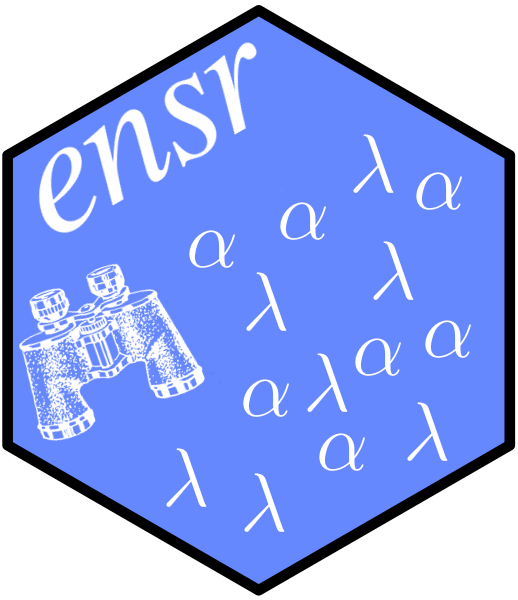
The hardware and bandwidth for this mirror is donated by dogado GmbH, the Webhosting and Full Service-Cloud Provider. Check out our Wordpress Tutorial.
If you wish to report a bug, or if you are interested in having us mirror your free-software or open-source project, please feel free to contact us at mirror[@]dogado.de.

Elastic Net regression models combine both the L1 and L2 penalties of lasso and ridge regression. There are two penalty terms, lambda and alpha. Lambda is a complexity parameter and alpha is a balance between lasso and ridge.
The cv.glmnet function in glmnet
will perform cross validation to find the value of lambda for a given
value of alpha. cv.glmnet does not search over values of
alpha. The ensr package builds a grid of alpha and lambda values and,
using cross-validation, suggests preferable values for both lambda and
alpha.
After installing this package we encourage you to read the vignette to see examples.
vignette("ensr-examples", package = "ensr")ensr is not currently on CRAN. You can install via github or after cloning the repo.
There are several ways you can install ensr. If you are working on a Windows machine you will need to have Rtools installed.
Within an active R session evaluate the following:
if ('remotes' %in% rownames(installed.packages())) {
install.packages('remotes', repos = "https://cran.rstudio.com")
}
remotes::install_github("dewittpe/ensr", build_opts = c("--no-resave-data"))There are detailed instructions for cloning the repo in the
CONTRIBUTING.md file. Windows users need to read the
details for cloning the repo so that symbolic links will be handled
correctly. After cloning use the makefile to build, check, and install
the ensr package, e.g.,
make installPlease read the CONTRIBUTING.md file. There are details
on the how to clone the repo and the structure of this package.
These binaries (installable software) and packages are in development.
They may not be fully stable and should be used with caution. We make no claims about them.
Health stats visible at Monitor.